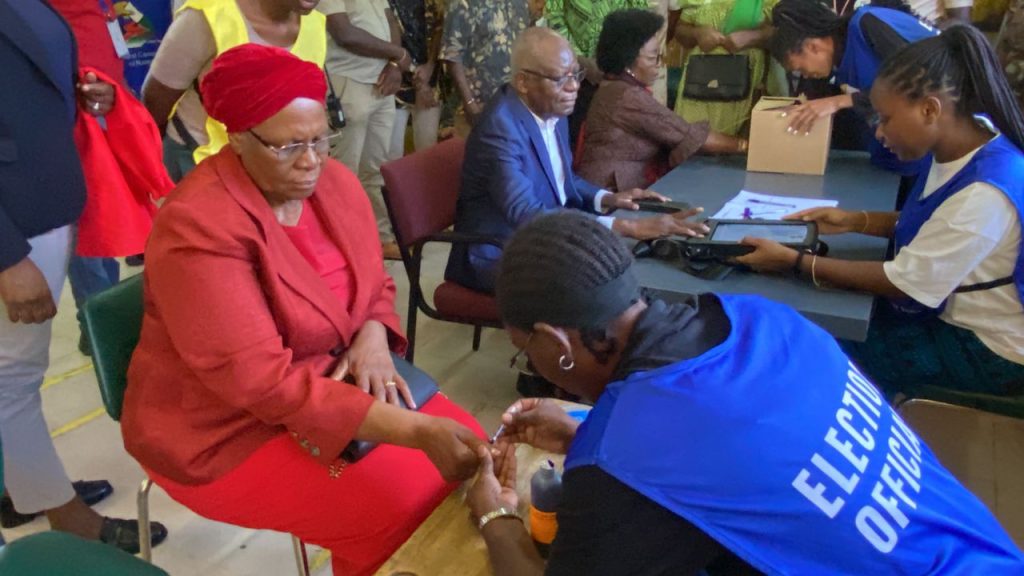Thousands of Namibians faced long queues and significant delays during Wednesday’s key presidential and legislative elections, with some waiting up to 12 hours to cast their votes. Polling stations remained open far beyond the scheduled closing time, as technical issues and ballot shortages disrupted the process.
The elections could see Namibia’s ruling South West Africa People’s Organisation (SWAPO) face its strongest challenge yet after 34 years in power, with the possibility of ushering in the country’s first female president, Netumbo Nandi-Ndaitwah. However, delays caused frustration among voters, many of whom criticised the Electoral Commission of Namibia (ECN) for the chaos.
Reagan Cooper, a voter in Windhoek, expressed disappointment, saying that the voters have turned out, but the electoral commission has failed us. Similarly, the opposition Independent Patriots for Change (IPC) accused the ECN of voter suppression, with IPC’s Christine Aochamus alleging deliberate efforts to frustrate voters.
Polling stations like the Windhoek town hall saw voting hours extended after running out of ballots. Applause greeted the late delivery of new ballots at 11:30 pm, allowing the last voter to cast their ballot just before midnight. Under Namibian law, anyone in line before the official closing time can vote.

Technical issues with voter identification tablets further slowed the process, with reports of dead batteries, overheating, and untimely software updates. Hundreds of voters endured the blazing sun armed with umbrellas, folding chairs, and snacks to manage the wait.
Namibia’s high unemployment rate, particularly among youth, has fuelled dissatisfaction with SWAPO’s leadership. Despite the nation’s wealth in uranium and diamonds, its nearly three million citizens see little benefit. Unemployment among 15- to 34-year-olds stands at 46%, nearly triple the national average.
First-time voter Sophia Varela, a 24-year-old student, expressed her hopes for change, calling for job creation for the youth. Others, like self-employed consultant Marvyn Pescha, remained loyal to SWAPO but called for reforms to combat corruption and improve policies.
IPC leader Panduleni Itula is optimistic about challenging SWAPO’s dominance. A former dentist and lawyer, Itula secured 29% of the vote in 2019, a stark contrast to SWAPO’s traditional stronghold. Analysts suggest this election could lead to a second voting round, a historic first for Namibia if no candidate achieves an outright majority.
Results from the first round are expected by Saturday, and a potential second round will take place within 60 days.
As Namibia navigates these elections, comparisons to other southern African nations loom large. Recent months have seen South Africa’s African National Congress lose its parliamentary majority and Botswana’s Democratic Party ousted after decades in power. Whether Namibia follows suit remains to be seen.


